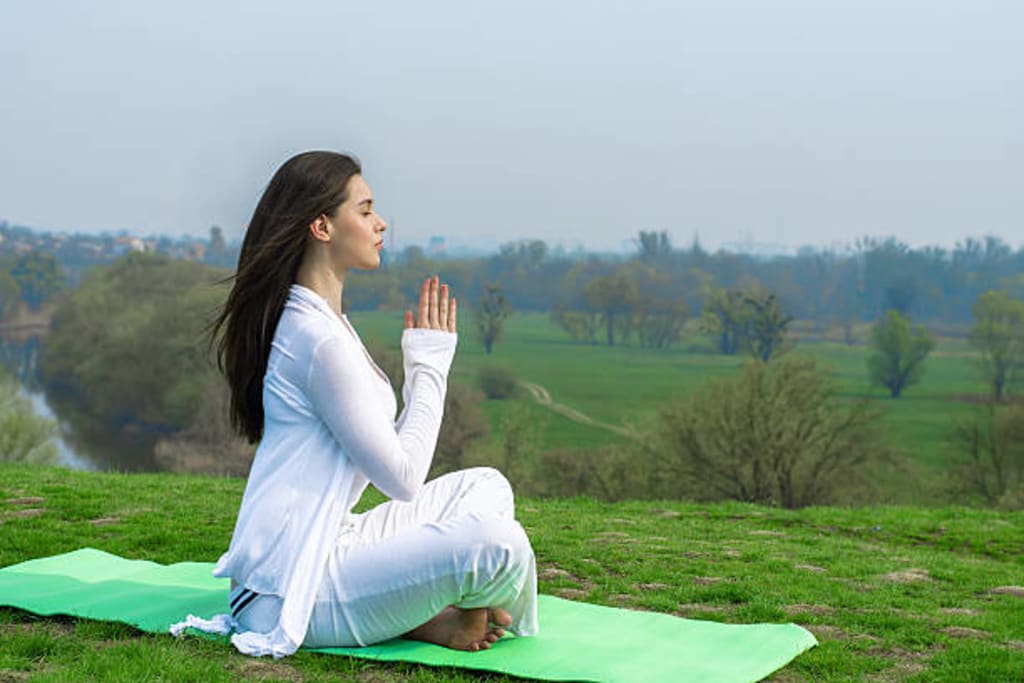Meditation Meaning in Urdu: Understanding the Art of Inner Peace
What is Meditation (تفكر)?

Meditation, or "تفكر" in Urdu, is a practice that transcends cultural and linguistic boundaries. It is a profound journey into the depths of one's consciousness, aimed at achieving inner peace, clarity, and spiritual growth. In this article, we will explore the meditation meaning in Urdu, its significance, and how it can benefit individuals in their quest for a balanced and harmonious life.
What is Meditation (تفكر)?
Meditation, often referred to as "تفكر," is a centuries-old practice deeply rooted in Eastern spiritual traditions. At its core, meditation involves focusing one's mind and eliminating distractions to achieve a heightened state of awareness and inner calm. While the term "تفكر" directly translates to contemplation or reflection, it encompasses a wide range of techniques and approaches.
Significance of Meditation in Urdu Culture
Meditation holds significant importance in Urdu culture and has been practiced for generations as a means of connecting with the inner self and the divine. It is often intertwined with Sufi mysticism, a prominent aspect of Islamic spirituality in the region. Sufi saints and scholars have long used meditation to attain spiritual enlightenment and foster a deeper understanding of the divine.
Types of Meditation in Urdu Culture
Zikr (ذکر): Zikr is a form of meditation involving the repetition of sacred words or phrases, such as the name of Allah or other divine attributes. This practice is believed to purify the soul and strengthen one's connection with the divine.
Tasbeeh (تسبیح): Tasbeeh meditation involves the use of prayer beads to recite specific phrases or prayers repeatedly. This rhythmic repetition aids in focusing the mind and achieving a meditative state.
Dhikr (ذکر): Dhikr is a more spontaneous form of meditation where individuals engage in the remembrance of Allah through verbal or mental recitation. It is often accompanied by deep breathing and a sense of surrender to the divine.
Mindfulness (ذهنی غور): In recent years, mindfulness meditation has gained popularity in Urdu-speaking communities. It involves being fully present in the moment, observing thoughts and sensations without judgment. Mindfulness meditation can help reduce stress and improve overall well-being.
Benefits of Meditation (تفكر) in Urdu Culture
Meditation, or "تفكر," offers a plethora of benefits that resonate with individuals in Urdu culture and beyond:
Stress Reduction (تنشید کمی): Regular meditation practice helps reduce stress and anxiety, allowing individuals to attain a state of tranquility.
Improved Focus (توجہ میں بہتری): Meditation enhances concentration and mental clarity, aiding in daily tasks and decision-making.
Spiritual Growth (روحانی ترقی): For many, meditation serves as a spiritual journey, helping individuals connect with their inner selves and the divine.
Emotional Balance (جذباتی توازن): Meditation fosters emotional resilience, enabling individuals to navigate life's challenges with equanimity.
Enhanced Well-being (بہتری خوشی): The practice of meditation contributes to an overall sense of well-being and contentment.
Meditation offers a multitude of benefits for both the mind and body. This ancient practice, which has stood the test of time, has gained widespread popularity in recent years for good reason. Some of the key benefits of meditation include:
Stress Reduction: Meditation is renowned for its ability to alleviate stress. By calming the mind and promoting relaxation, it helps reduce the production of stress hormones, leading to a sense of calm and emotional well-being.
Improved Focus and Concentration: Regular meditation enhances concentration and cognitive function. It trains the mind to stay present and focused, which can be invaluable in our fast-paced, distraction-filled world.
Emotional Regulation: Meditation cultivates emotional awareness and resilience. It enables individuals to better understand and manage their emotions, leading to greater emotional stability and control.
Enhanced Creativity: Many creative individuals turn to meditation to tap into their creativity. The practice can stimulate innovative thinking and problem-solving by quieting the mind and fostering fresh perspectives.
Better Sleep: Insomnia and sleep disturbances can be eased through meditation. It relaxes the body and mind, making it easier to fall asleep and enjoy a more restful night's sleep.
Mind-Body Connection: Meditation strengthens the connection between the mind and body, promoting holistic well-being. This can lead to improved physical health and a heightened sense of self-awareness.
Reduced Anxiety: Anxiety and symptoms of anxiety disorders can be mitigated with regular meditation. It encourages a sense of inner peace and diminishes excessive worry.
Pain Management: Meditation has been shown to reduce the perception of pain and improve pain tolerance. It's often used as a complementary approach in managing chronic pain conditions.
Enhanced Self-Awareness: Through introspection and self-reflection, meditation helps individuals gain a deeper understanding of themselves, their habits, and their thought patterns.
Spiritual Growth: For many, meditation is a spiritual practice that fosters a sense of connection with a higher power or the universe. It can be a tool for exploring one's spiritual beliefs and purpose in life.
Incorporating meditation into your daily routine, even for just a few minutes, can lead to these profound benefits, promoting overall well-being and a more balanced, centered life.
Conclusion
Meditation, or "تفكر," is a profound and meaningful practice deeply ingrained in Urdu culture. Whether through the repetition of sacred words, the rhythmic use of prayer beads, or the mindful observation of thoughts, meditation offers a path to inner peace and spiritual growth. It is a practice that transcends language, uniting individuals on a journey toward greater self-awareness and harmony with the universe.
About the Creator
Enjoyed the story? Support the Creator.
Subscribe for free to receive all their stories in your feed. You could also pledge your support or give them a one-off tip, letting them know you appreciate their work.





Comments
There are no comments for this story
Be the first to respond and start the conversation.